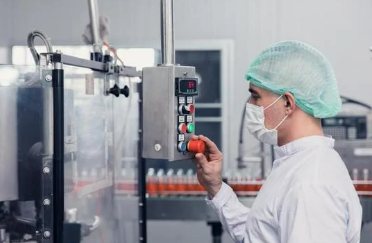How CIPA Can Renovate the Food & Beverage and FMCG Industries
CIPA (Continuous Improvement and Performance Analysis) by Industry X.0 is designed to enhance the Food & Beverage and FMCG industries through digital transformation. By leveraging automation, AI, and advanced analytics, CIPA improves operational efficiency, ensures regulatory compliance, enhances product quality, and fosters innovation.
%
improved operational efficiency
%
error reduction in compliance
%
reduction in quality deviations
Below are key areas where CIPA can deliver substantial value, along with specific use cases and the percentage improvements in performance and cost reduction :
Automated Documentation and Compliance Management
Enhancing Regulatory Compliance
In the Food & Beverage and FMCG industries, strict regulatory compliance is essential to ensure product safety and quality. Non-compliance can lead to recalls, fines, and loss of consumer trust. CIPA streamlines compliance management by automating documentation processes and ensuring adherence to ever-changing regulations, reducing the risk of human error.
%
Error Reduction
%
Savings On Audit Costs
Before CIPA
Manual compliance tracking results in a 10% error rate, leading to frequent audits and costly corrective actions.
After CIPA
Automating compliance reduces errors by 90%, resulting in 50% fewer delays in product launches and 30% lower compliance audit costs due to fewer compliance issues.
Digitalized Production and Quality Assurance
Boosting Efficiency through Digitalization
Inefficient processes in production and supply chain management can lead to wasted resources and increased costs. CIPA enables the digitalization of these processes, allowing for real-time data access, improved scheduling, and optimized resource allocation, ultimately enhancing overall efficiency.
%
improvement in operational efficiency
Before CIPA
Traditional inventory management leads to 15% inefficiency in production scheduling and inventory control, causing stockouts or overstock situations.
After CIPA
Digitalizing operations increases efficiency by 25-30%, as real-time data allows for precise inventory management and demand forecasting.
Predictive Analytics for Quality Control
Advanced Analytics and AI for Continuous Improvement
In the fast-paced Food & Beverage and FMCG sectors, rapid decision-making is crucial. CIPA utilizes advanced analytics and AI to derive actionable insights from data, enabling continuous improvement in operations and product quality, and facilitating proactive decision-making.
%
Reduction In quality deviations
%
reduction in costs related to recalls
Before CIPA
Unanticipated quality issues can lead to 5-7% product recalls annually and significant reputational damage.
After CIPA
Predictive analytics decrease quality deviations by 40-50%, helping to prevent recalls and ensuring consistent product quality.
Real-Time Tracking of Raw Materials
Improving Supply Chain Transparency
Transparency in the supply chain is critical for managing risks and ensuring product quality. CIPA enhances supply chain visibility, allowing companies to track raw materials from sourcing to distribution. This transparency not only mitigates risks but also optimizes inventory management.
%
reduction in inventory costs
%
decrease in recall risks
Before CIPA
Lack of real-time visibility leads to 15% higher inventory holding costs and increased risks associated with product quality and recalls.
After CIPA
Real-time tracking reduces inventory costs by 20%, improves demand forecasting accuracy, and lowers recall risks by 25%, ensuring product safety and compliance.
Accelerating Product Development with Data Insights
Fostering Innovation through R&D Optimization
The ability to innovate rapidly is a key competitive advantage in the Food & Beverage and FMCG sectors. CIPA optimizes research and development processes, enabling companies to efficiently gather and analyze consumer insights and market trends, accelerating product development cycles.
%
faster time to market for new products
Before CIPA
Inefficient data handling and market analysis extend product development timelines by 10-15%, delaying new product launches.
After CIPA
Optimized data management and analytics shorten time to market by 20-30%, allowing companies to respond swiftly to consumer demands.
Continuous Quality Monitoring and Reporting
Ensuring Product Quality and Safety
Maintaining high product quality is vital in the Food & Beverage and FMCG sectors, where quality issues can have serious consequences. CIPA enhances quality assurance processes through continuous monitoring and automated reporting, ensuring products meet safety standards.
%
reduction in quality deviations
%
savings from reduced rework
Before CIPA
Manual quality assurance processes lead to 5-10% quality deviations, resulting in increased rework costs and potential safety issues.
After CIPA
Real-time monitoring reduces quality deviations by 40-50%, leading to 15-20% fewer recalls and lower rework costs.
Reducing Waste and Energy Consumption
Sustainability and Environmental Impact
As sustainability becomes increasingly important to consumers and regulators, companies in the Food & Beverage and FMCG sectors must focus on reducing their environmental impact. CIPA helps organizations optimize resource usage and minimize waste, aligning with sustainability goals while lowering costs.
%
reduction in energy consumption and operational costs
Before CIPA
Inefficient resource use can lead to 10% higher operational costs due to excessive waste and energy consumption.
After CIPA
CIPA enables companies to reduce waste and energy usage by 15-20%, significantly lowering operational costs while enhancing their sustainability profile.

